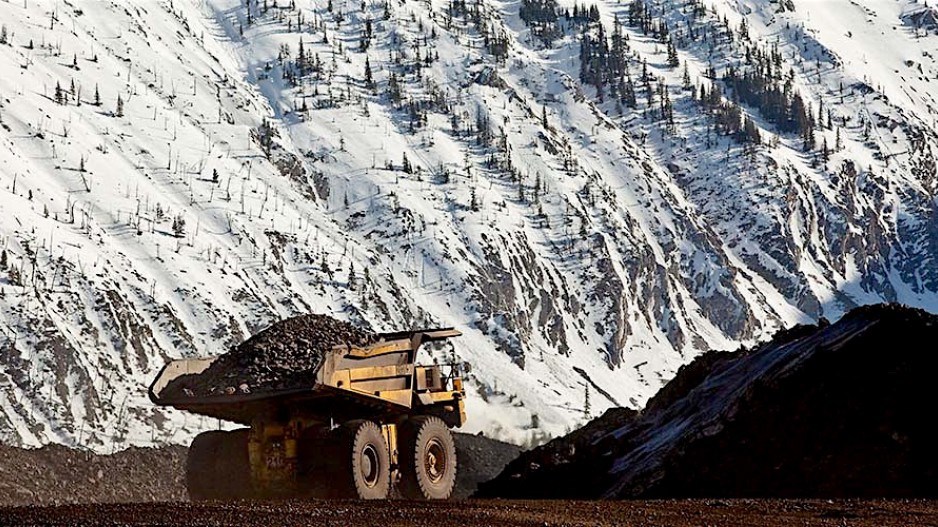Metallurgical coal prices are at all-time highs, providing companies like Teck Resources (TSX:TECK.B, NYSE:TECK) – the world’s second-largest producer of steelmaking coal – with a potential big windfall.
And with the long-term demand for steel expected to grow significantly over the next few decades – driven largely by global decarbonization efforts – there is perhaps no better time to be in the met-coal business.
So why would Teck be considering getting out of the metallurgical coal mining business?
Bloomberg recently reported that Teck is considering divesting itself of its steelmaking coal portfolio – estimated to be worth $8 billion.
In a recent investor and analyst presentation, Teck CEO Don Lindsay said he wouldn’t comment on speculation about the company’s plans, but went on to explain why it might make sense for Teck to either divest its met-coal assets altogether or at least shrink its coal portfolio in comparison to its growing copper portfolio.
“Conversations about the composition of our portfolio and the role of carbon in our portfolio are not new, nor are they news. We’ve been quite public that we were looking to reduce the proportion of coal in our portfolio over time.”
That strategy is part of Teck’s goal of becoming carbon neutral by 2050 and reducing its emissions intensity 33% by 2030. It may also have something to do with the growing reluctance of environmental, social and governance-minded investors to commit capital to anything that has the word “coal” in it and the difficulty in getting new projects approved.
Teck is going all-in on copper. It plans to double its copper production by 2023, when its new QB2 mine in Chile goes into production. The expected increase in demand for, and value of, copper is being driven by energy transition initiatives, especially in the electric car market.
“They are definitely focused on copper, and copper is very important, but arguably met-coal is just as important for the energy transition,” Anthony Knutson, metallurgical coal analyst for Wood Mackenzie, told BIV News.
The energy transition will also require a lot of steel, as well as the metallurgical coal that is a critical component in making it.
Though there are lower-carbon alternatives proposed for making steel – hydrogen being one of them – analysts expect it will be decades before those alternatives will replace steelmaking coal in blast furnaces, especially in places like China and India.
“Hydrogen won’t become the dominant reducing agent for decades,” Knutson said. “Our base case has met-coal growing, as India and other regions, including Southeast Asia, urbanize.
“We looked at some accelerated energy transitions for a 2.0 scenario, which is a two-degrees rise in temperature, and met-coal is required. We still need it.”
Meanwhile, in the short term, if Teck is seriously considering its coal assets, now would be a good time to put its mines up for sale, because met-coal is suddenly a very hot commodity.
Met-coal prices have gone through the roof, in part due to China’s ban on Australian coal imports. Seaborne met-coal is generally selling for around US$400 per tonne and US$570 per tonne in China.
That’s more than double what the prices were a year ago, and US$100 per tonne above the record high of US$300 per tonne in 2008.
But while long-term fundamentals for met-coal are good, Teck points to the difficulties producers face in getting new mines permitted and financed. Asked about new met-coal mines in the pipeline around the world, Lindsay said there aren’t many.
“There isn’t much being announced, other than projects being turned down in both Australia and Canada and elsewhere in the market,” he said.
In early August, federal Environment Minister Jonathan Wilkinson rejected the Grassy Mountain met-coal mine an Australian company hoped to develop in Alberta. The year before that, Wilkinson determined that a planned Teck expansion for its Fording coal mine would need to undergo a full federal environmental review. The company had not expected the project to be subjected to a full environmental review, because it is an expansion of an existing mine operation.
Despite being used for different purposes, the mere association met-coal has with thermal coal (burned to produce power) has tainted it in the minds of some investors and insurers, Knutson said, even though it will be critical for making the steel that will be needed for electric cars, wind turbines and transmission lines.
He can therefore understand why a company like Teck might consider getting out of the met-coal business, and with prices where they are now, it would be a good time to try to find a buyer. •




